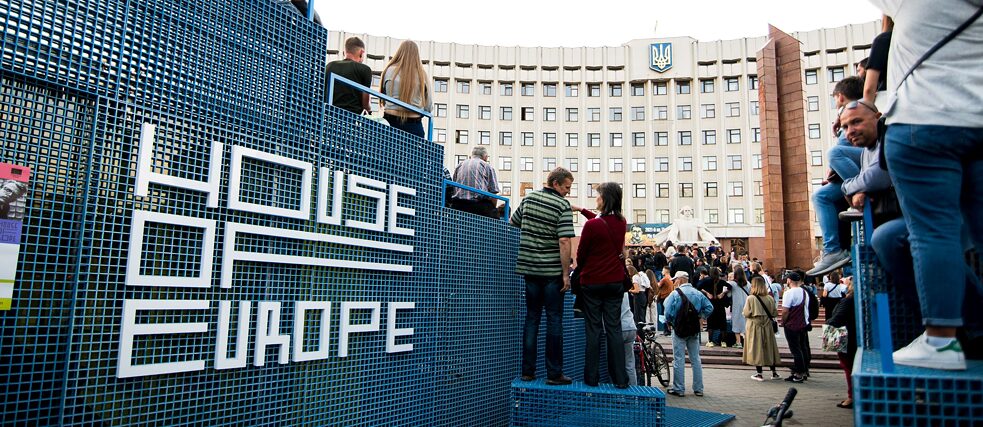As a partner and contractor of the EU, we realise projects and advise the EU Commission regarding international cultural and educational work. The focal points of our work are also reflected in our collaboration with the EU. These are particularly aimed at promoting the importance of culture and education, as well as an independent civil society in Europe and in European external relations.
Together with our partnersand on behalf of the EU, we implement project funding and service contracts amounting to tens of millions of euros every year. As well as the Directorate-Generals “Youth, Sport Education, Culture” (DG EAC), “International Partnerships” (DG INTPA) and “European Neighbourhood and Enlargement Negotiations” (DG NEAR), the EU delegations in the countries play an important role.
In 2021 we successfully completed the EU Pillar Assessment, and are thereby empowered to negotiate direct allocations with the European Union, and administer funds on behalf of the EU. Within this context, we support stakeholders worldwide with funding from the EU. You can find an overview of all funding and service contracts over €15,000 awarded in this context here:
We are active at European level in various networks and initiatives:
EUNIC - European National Institutes for Culture – is the independent European network of cultural institutes which is active internationally in the cultural and educational sector. The members of the network include independent national cultural institutions, foreign and cultural ministries as well as organisations for development cooperation. Together they aspire to create trust and understanding between the countries of Europe and between Europe and the world through cultural exchange, and to strengthen the contribution made by culture and education to international relationships.
Following the conclusion of the Pillar Assessment, the Goethe-Institut has joined the Practitioners’ Network for European Development (PN). The Practitioners Network is open to national organisations working in the field of development cooperation from European member states who have successfully completed the Pillar Assessment.
Contact
The Europe Officer represents the Goethe-Institut vis-à-vis the European institutions in Brussels with the aim of strengthening the dialogue between politics and culture in a European context and fostering international cultural cooperation.
Contact: dir-bruessel@goethe.de
The role of the Staff Department Cooperation and Third-Party Funding is to organise collaboration with third-party funders, advise on partnership with companies and foundations, and accompany – as a lead partner – the implementation of third-party funded projects.
Contact: kad@goethe.de
